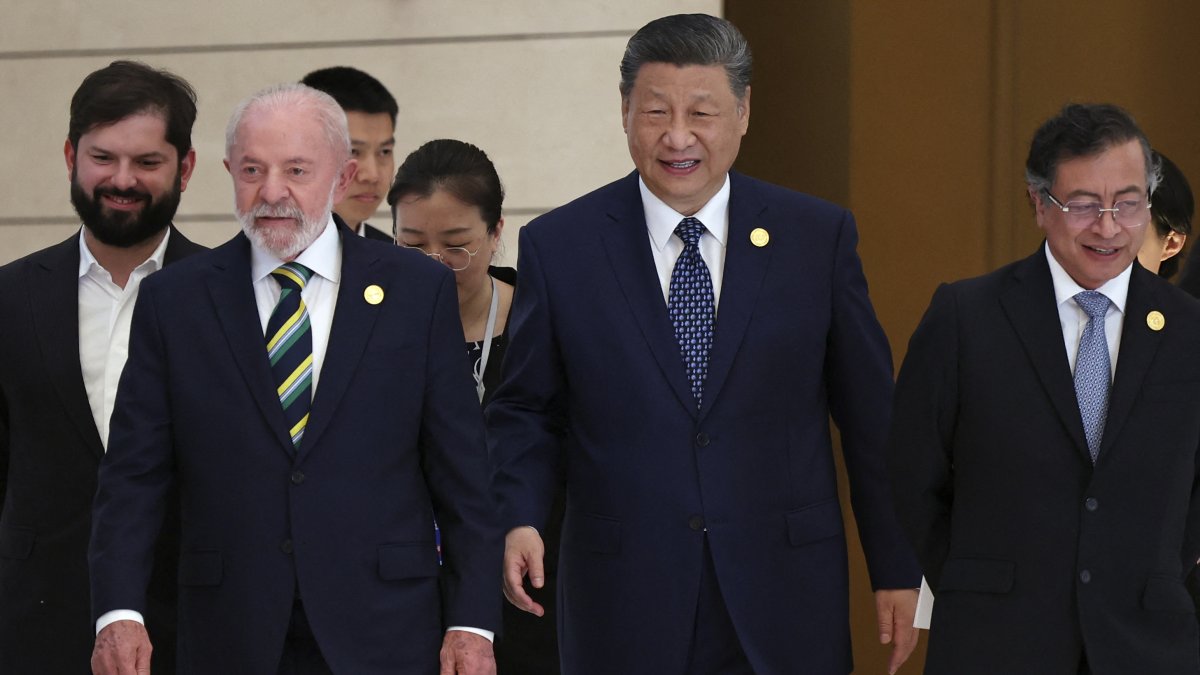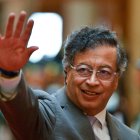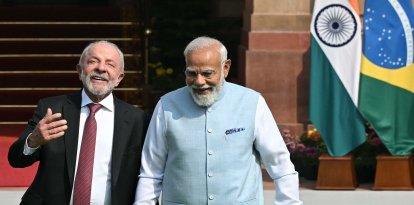Beijing regime strengthens ties with the Latin American left at the 4th China-Celac Ministerial Forum
In the last decade, China has intensified economic and political cooperation with the Latin American left, deploying important investments in the framework of the Belt and Road Initiative.

Xi Jinping, Luis Ignacio Lula da Silva, Gabriel Boric and Gustavo Petro.
Beijing hosted Latin American and Caribbean leftist leaders on Tuesday for the 4th China-CELAC Ministerial Forum. The event represents an opportunity for these countries to strengthen ties with the Chinese communist regime amid the ongoing trade war with the U.S.
During the opening of the forum, which is attended by the leftist presidents of Colombia, Brazil and Chile, Xi Jinping criticized "the bullying and hegemony" exercised by other states.
The president of the Chinese regime, Xi Jinping, spoke at the opening of the forum of a closer and more cooperative relationship with Latin America and the Caribbean in times of what he described as "geopolitical confrontation" and "protectionism," referring to the US.

World
Under the Shadow of the Dragon: How China Silences and Crushes its Dissidents Abroad
Luis Francisco Orozco
"Although China is far from the Latin American and Caribbean region, the two sides have a long history of friendship," he said in his keynote address.
Over the past decade, China has intensified economic and political cooperation with several Latin American countries, deploying significant investments under the Belt and Road Initiative.
Two-thirds of Latin American countries have already joined this global infrastructure investment program driven by China, which is valued at $1 billion.
Likewise, the main trading partner of Brazil, Peru and Chile is China. The trade between the Asian giant and the region exceeded $500 billion last year, "40 times more than at the beginning of the century," Xi Jinping celebrated.
Cooperation initiatives proposed by the Chinese regime
The communist party leader proposed several initiatives to "build a Sino-Latin American community with a shared future," such as a $9.2 billion fund in development loans.
"Faced with the current of geopolitical and bloc confrontation, the rise of unilateralism and protectionism, China wishes to join hands with Latin America," Xi said.
Likewise, the regime proposed greater cooperation in areas such as infrastructure, agriculture, mining, digital economy or green energy, establishing promotion programs or working with the region in counterterterrorism and the fight against organized crime.
Latin American left flirts with Beijing
Chilean President Gabriel Boric said Tuesday from China that his country must make "a leap in quality" in its economic relationship with the Asian giant, thus defending "multilateralism and free trade."
"We have the conviction that this is the right time to take a leap of quality in the economic linkage with China," Boric assured at the opening ceremony in Beijing.
Chile was the first South American state to establish trade relations with communist China in 1970 and in 2005 was the first to sign a free trade agreement with the regime.

World
Petro advances in the OAS: His candidate is elected assistant secretary general
Víctor Mendoza
For his part, Colombian president and former guerrilla, Gustavo Petro, defended a diplomacy "free of authoritarianism and imperialism." The coffee grower leader also regretted that the dialogue with the U.S. is not progressing.
According to the Colombian communist, the dialogue "does not advance because ideologies increasingly darken the heart, the soul and the brain, it does not advance because the climate crisis is denied, it does not advance because we do not advance the importance of life and increasingly we look more and more at the importance of the dollar and greed," he insisted.
Likewise, the Brazilian president, Lula da Silva, said that the system of world governance "no longer reflects the diversity that inhabits the Earth."
The Brazilian leader also advocated "reducing the differences between countries," lamenting the "distortions" in international trade.
























